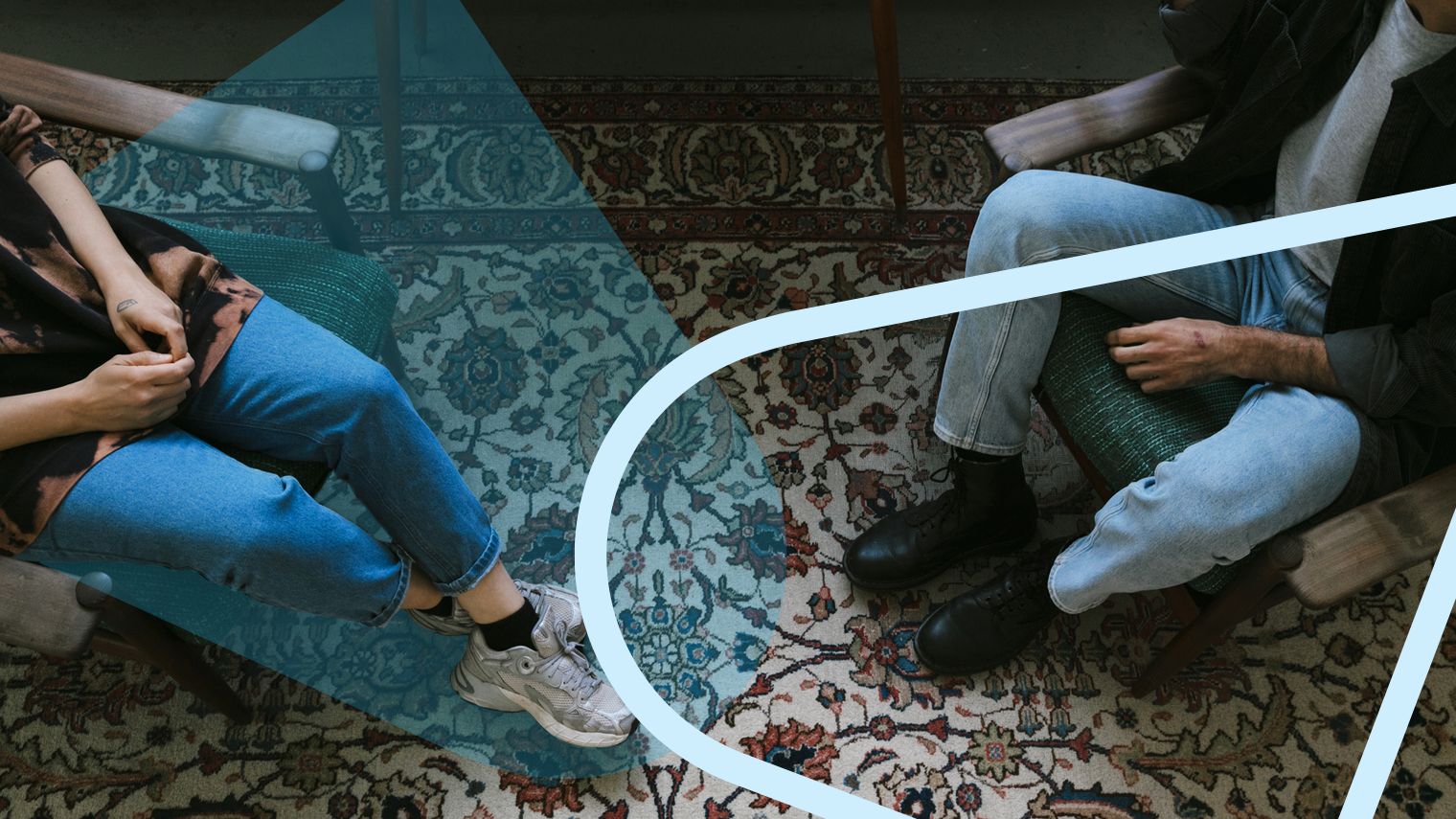My Experience Managing Depression with DBT
January 26, 2023
Content created for the Bezzy community and sponsored by our partners. Learn More

Photography by Visual Spectrum/Stocksy United
Dialectical behavior therapy (DBT) gave me practical skills that I can always refer to when my depression starts to take over.
I didn’t think much about the different therapeutic models available until I was admitted to an inpatient psychiatric hospital in 2021. I’d heard a bit about cognitive behavioral therapy (CBT) from my therapist, but that was about it.
So when my first group therapy session rolled around in the hospital, I hadn’t heard about dialectical behavior therapy (DBT) until the group therapist introduced it. When he explained the concept, I knew I wanted to learn more about it and try it out in my healing journey.


What is DBT?
DBT is a type of talk therapy that psychologist Marsha M. Linehan initially developed in the late 1970s to treat personality disorders like borderline personality disorder (BPD).
Linehan specialized in researching suicidality and lived with BPD herself. She developed DBT to help treat those with intense emotions that weren’t receiving help from other talk therapies.
Since its creation, DBT has been shown as effective in treating mental health conditions like BPD, post-traumatic stress disorder (PTSD), eating disorders, major depressive disorder, anxiety, self-harm, and suicidal thoughts.
Why DBT resonates with me
When I learned that the psychologist who developed DBT experienced mental health struggles of her own, I gained a lot of respect for it. Knowing that Linehan had personal experience with mental illness helped me trust that her heart was in the right place when she created DBT.
Another thing that drew me to DBT was its focus on both changing our lives and accepting our reality. DBT concepts are grounded in balance, which appeals to me as someone with many conflicting ideas and beliefs.
After covering some of the central tenets of DBT in the psychiatric hospital, I went home and asked my therapist about trying out the entire course of DBT with her. She agreed that DBT sounded like an excellent option for me, and we started.
As of the date this article was published, my therapist and I have been working on DBT for over a year.
What is DBT like?
Before we could begin DBT, my therapist asked me to purchase a DBT workbook to help guide me through the modules. It cost about $35 on Amazon.
The workbook is incredibly helpful because DBT is about learning skills to improve your quality of life. I often go back to the workbook to help me remember exactly how to practice each particular skill.
There are four main modules in DBT:
- mindfulness
- interpersonal effectiveness
- emotion regulation
- distress tolerance
Each module is broken down into sections. Every time we started a new module, my therapist began by explaining the theories behind it and why it is an essential set of skills for my recovery. Then, she slowly led me through the skills outlined in each module.
After each session, my therapist asked me to practice the skills I learned in the previous session.
How DBT helped me
One of my favorite things about DBT is how comprehensive it is. Each module is unique and has a series of tools you can use to cope with different life situations.
Suppose I’m feeling emotionally overwhelmed and need to calm down my emotions to feel them safely. In that case, I can flip through the emotion regulation module in my workbook and use specific tools designed to help me in my current situation.
The educational component of DBT was also beneficial for me. Going through DBT therapy taught me a lot about my psychology and why I behave the way I do. My therapist ensured that I understood each tool’s importance while we went through the modules.
DBT is full of acronyms to help you remember its many available tools. When I first started DBT, the acronyms made my eyes roll. But after I used a few tools to help me in challenging moments, I grew to appreciate the acronyms. They help me remember what skills to use and in what order.
In between the acronyms are several exercises that helped me get to know myself and my mental health better.
I learned so much about my values, the emotions that are hardest for me to cope with, and my specific mental health struggles through DBT.
My challenges with DBT
While DBT has helped me learn more about myself and find healthier ways to cope with tough emotions and crises, DBT does have its limitations.
First, one of the things I love about DBT is also a drawback for me. DBT is detailed and filled with educational tidbits. There are so many different tools and skills to learn that it can become overwhelming.
The hardest part for me is figuring out when to use a specific skill. It’s hard to know which is the best fit for a particular situation, especially when emotionally overwhelmed.
I also struggle to incorporate more detailed skill sets into my daily life. When I read over the acronyms and the tools with my therapist, they make a lot of sense and help me see the world in a different light. However, when I’m actually living through the situation we talked about in therapy, it’s much harder to use the tools I learned in a theoretical setting.
The bottom line
Overall, DBT changed my life for the better. After going through each module of DBT, I now have a dense toolbelt with many valuable skills to help me when I’m facing the toughest of times.
While DBT does have some limitations, I’m glad I took a chance to include DBT in my recovery process.
Medically reviewed on January 26, 2023


Like the story? React, bookmark, or share below:
Have thoughts or suggestions about this article? Email us at article-feedback@bezzy.com.
About the author